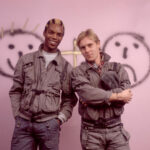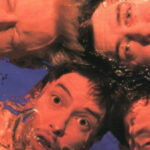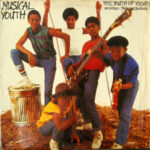In the annals of cult cinema, few films hold the same level of infamy and adoration as “Death Race 2000,” a dystopian action-thriller released in 1975. Directed by Paul Bartel and produced by Roger Corman, the film presents a darkly satirical vision of a future America where violence and spectacle reign supreme. With its over-the-top action sequences, biting social commentary, and unforgettable characters, “Death Race 2000” has become a beloved classic of exploitation cinema, inspiring sequels, remakes, and a dedicated fanbase that continues to celebrate its anarchic spirit to this day.
The plot of “Death Race 2000” unfolds in a dystopian America where the government has established a cross-country race known as the Transcontinental Road Race, or simply “The Death Race,” as a means of controlling the population and quelling dissent. Set in the year 2000, the race pits five drivers against each other in a deadly competition where points are awarded for running down innocent pedestrians. The drivers, known as “heroes,” are hailed as celebrities, while the race itself is broadcast to a nationwide audience hungry for violence and spectacle.
At the center of the film is Frankenstein, the reigning champion of the Death Race and a mysterious figure shrouded in secrecy. Played with a mix of menace and charisma by David Carradine, Frankenstein is a legendary figure in the world of the race, revered for his skill behind the wheel and his enigmatic persona. As the latest edition of the Death Race gets underway, Frankenstein finds himself facing off against a motley crew of competitors, including Machine Gun Joe Viterbo, played with manic energy by Sylvester Stallone, and Calamity Jane, a femme fatale with a deadly streak, portrayed by Mary Woronov.
As the race unfolds, “Death Race 2000” delivers a series of high-octane action sequences that are equal parts thrilling and absurd. From car chases through city streets to battles with rival drivers on treacherous highways, the film is filled with adrenaline-pumping moments that keep audiences on the edge of their seats. Director Paul Bartel, known for his distinctive blend of dark humor and social commentary, infuses the film with a sense of anarchic energy, gleefully skewering the excesses of American society while delivering the thrills and spills that fans of exploitation cinema crave.
What sets “Death Race 2000” apart from other dystopian thrillers of its era is its unapologetic embrace of camp and satire. While the film’s premise may be dark and dystopian, its tone is decidedly tongue-in-cheek, with characters and situations that border on the absurd. Whether it’s Frankenstein’s iconic mask, which hides his scarred face and mysterious past, or Machine Gun Joe’s over-the-top bravado, the film revels in its own outrageousness, inviting viewers to suspend their disbelief and go along for the ride.
But beneath its surface of camp and spectacle, “Death Race 2000” also offers a biting critique of American culture and its obsession with violence and celebrity. Through its depiction of the Death Race as a form of state-sanctioned entertainment, the film raises questions about the morality of a society that values bloodshed over human life. By casting the drivers as larger-than-life figures and the race itself as a national obsession, “Death Race 2000” forces viewers to confront uncomfortable truths about the nature of power, fame, and the human capacity for cruelty.
Despite its low-budget origins and controversial subject matter, “Death Race 2000” struck a chord with audiences upon its release and has since become a cult classic of 1970s cinema. Its blend of action, satire, and social commentary has inspired countless imitators and cemented its status as a beloved fixture of the exploitation genre. While it may not be to everyone’s taste, there’s no denying the impact and influence of “Death Race 2000” on the world of cinema, making it a must-see for fans of cult classics and dystopian thrillers alike.
Stream movie for FREE ON TUBI (no registration required)
This post has already been read 208 times!










